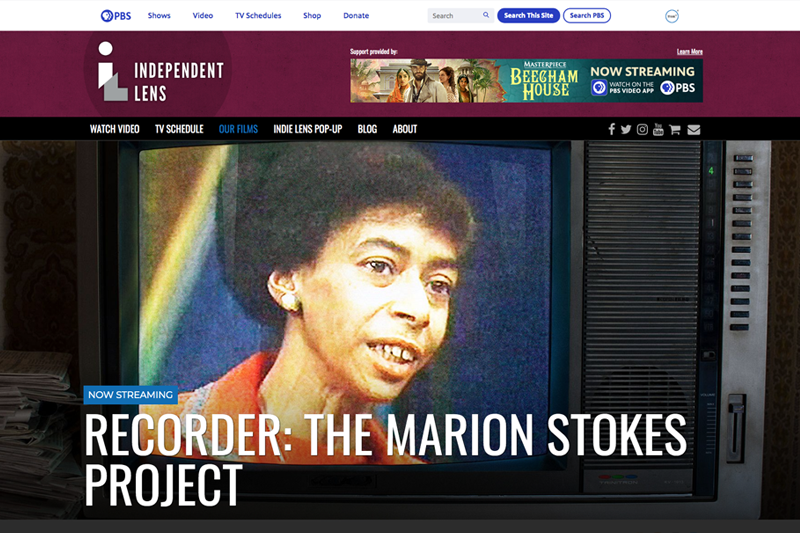Blogs

‘Recorder: The Marion Stokes Project’: A Documentary with a Dayton Connection
By Kayla Harris
Through July 14, the documentary film Recorder: The Marion Stokes Project is streaming for free through PBS and Independent Lens. Directed by Matt Wolf, the film explains how Marion Stokes, a former librarian, began recording American television on Nov. 4, 1979, and continued doing so for 24 hours a day, 7 days a week, for 33 years until the day she died. The film was a New York Times Critic’s Pick in November 2019.
Seeking truth and checking facts
With multiple televisions recording throughout her home, Stokes captured local and national news stories from across the country, beginning at a time local TV stations generally only kept their news tapes for less than a week before reusing them or destroying them. In the film, son Michael Metelits states, “She wanted people to be able to seek the truth and check facts.”
In 2013, Stokes’ collection of over 70,000 VHS tapes and some of her personal papers were donated to the Internet Archive, a nonprofit digital library with a mission statement of “universal access to all knowledge.” The eventual goal is for the collection of tapes to be digitized and made available to the public — a monumental task.
Archiving as activism
Stokes’ story is especially significant to the University of Dayton, given the connection that the University Libraries has with her second husband, John S. Stokes Jr. John Stokes was a co-founder of the Mary’s Gardens movement and donated the John Stokes and Mary’s Gardens archival collection, along with artwork, his library and an extensive website to the Marian Library in 2013. Librarians in the Marian Library frequently teach with this collection to classes from biology, art and design, history, women’s and gender studies, religious studies and English.
Marion and John Stokes first met while John Stokes was the director of the Wellsprings Ecumenical Center in Philadelphia. The pair also worked together frequently in the 1960s and ’70s on a panel discussion television show, Input, that tackled topics still relevant today, such as race, violence, faith and community.
In 2017, the University Libraries hosted a Mary’s Gardens exhibit, featuring items from the John Stokes and Mary’s Gardens collection. Some of these materials are digitized and available in eCommons, including a selection of social justice pamphlets, demonstrating the range of issues — from civil rights and labor unions to environmental stewardship — that the Stokeses were involved in.
A recurring question addressed throughout the film is why anyone would undertake such a project as recording television programming around the clock. As Metelits explains in the film, his mother “became aware of the power of television to misinform people. Taping was a form of activism.”
We invite all to watch this fascinating documentary and reach out to the librarians at the Marian Library with any questions about the John Stokes and Mary’s Gardens collection. They’re available through Book a Librarian or can be reached at marianlibrary@udayton.edu.
— Kayla Harris is an assistant professor and a librarian/archivist in the Marian Library.
